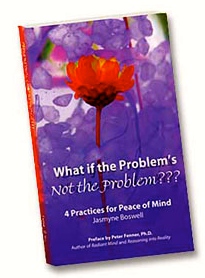Writing is not just for those who consider themselves “writers.” It is just as much a transformational tool as it is a craft for creative endeavors. We write all the time to get clear about the thoughts and ideas running through our minds. It’s a way to see what we are thinking.
When clients endlessly recycle their thoughts, I tell them to write them down. This process acts as a dumping station for the unwanted matter. Once the top layer of thinking is removed, space is made for something fresher. That space nourishes us and readies us for what is to come.
American playwright Tony Kushner wrote, “Your writing should reveal things about yourself you didn’t know before you put your pen to paper (or your hands to keyboard). Instead of recycling popular themes . . .”
The thoughts in your conscious mind, the voice in your head, become known when you write. Once they are out, the inspiration, which I call fresh off the press, has space to rise and shine.
Kushner goes on to say, “Part of the exciting thing about being a writer in any medium is that if you start to dig around in there and use words and the muscular activity of writing, you discover things inside of yourself, people inside of yourself, knowledge inside of yourself that you didn’t know you had.”
This is true not only for professional and novice writers looking for their unique writing voice but for those interested in hearing from a deeper part of themselves. This takes a subtler listening and a clearing of our repetitive stories. Writing the initial burst of what is at the forefront of our mind makes way for the next download. This is how we get to what lies below, the next layer of our personal evolution.
Using writing as a regular practice, a tool for transformation clears the way for our most authentic voice to make its way to our conscious mind. There are a variety of practices to choose from. Here are a few:
1 – For those who want structure, use something Julia Cameron (author of The Artist’s Way), calls “morning pages.” This is a type of automatic writing that involves writing three pages every morning, feel like it or not. Once you put pen to paper, you keep going until you complete three pages. You can read it or choose not to. This process acts as a clearinghouse for the mind.
2 – Keep a journal or notebook close at hand. If you find yourself ruminating, write it all down. Writing brings you back to the present moment. It also allows you to clearly see what’s vying for your attention.
3 – Write in your journal before going to bed. This gives conscious thought to questions and ideas you have been toying with during the day and allows an overview of your thoughts and feelings. Journaling in this way then becomes a form of inquiry as well as an outlet for random thinking.
Using writing as a conscious exercise helps to relieve repetitive thinking. It is an active form of meditation that allows us to connect with spaciousness.
P.S. Though this article focused on writing for the purpose of clearing the mind, most of my memoir writers would tell you that writing about their life transformed them to their very core.
Enjoy!
Blog Coaching Miscellaneous themes Tips for Writing A Book Transformational Coaching

